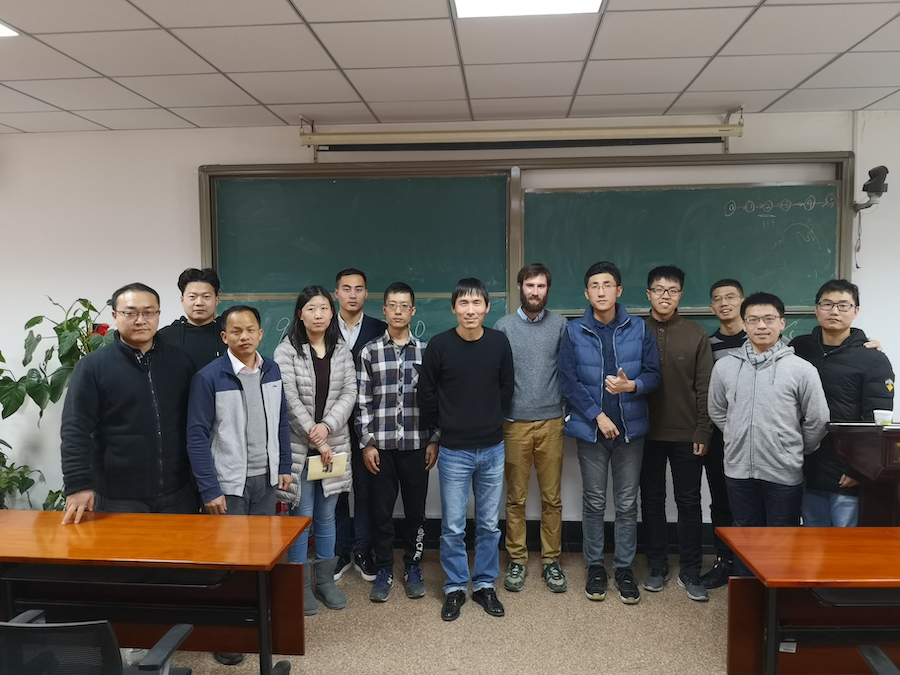Visiting Peking University
In December Ben Koger visited the Intelligent Control Lab at the Peking University School of Engineering. The lab, run by Professor Xie Guangming, studies control theory for complex dynamical systems and uses these insights to develop real world robotic applications. The lab uses natural systems as inspiration for much of their work. In particular, they have developed very realistic swimming robotic fish that they use to study the potential energy benefits of schooling. Further information about how real groups in the wild respond to complex environments is very useful for their work.
Ben presented the techniques developed by Herd Hover to collect data about diverse ungulate groups in the wild. One of the challenges in designing real world robotic systems is learning how to efficiently observe the environment and then using that information to make fast correct decisions to solve a task. The ungulate groups we study have evolved to do just that whether it be threat detection and evasion, resource search strategies, or distributed decision making. Understanding how animal groups solve these challenges is good inspiration for roboticists. For us, understanding how an engineered agent might optimally solve these problems is very useful as a starting point to think about how animals might really be behaving.
Thanks so much to the Professor Xie and Zhang Tianhao for showing Ben around.

Ben with members of the Intelligent Control Lab at Peking University
